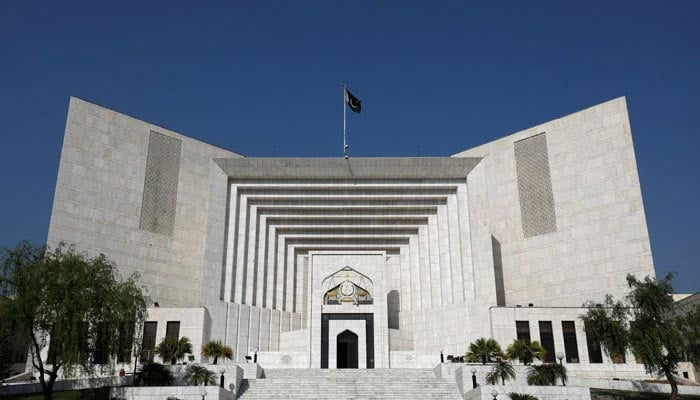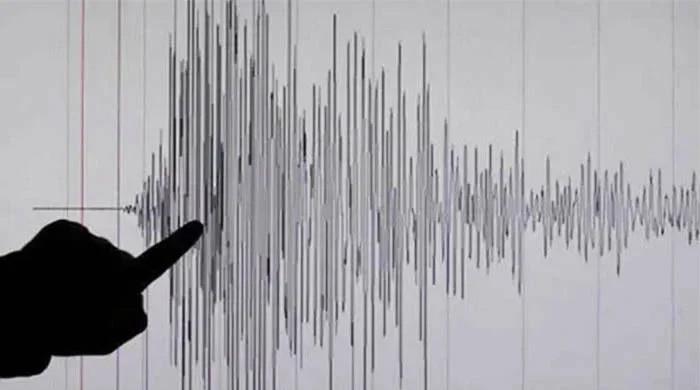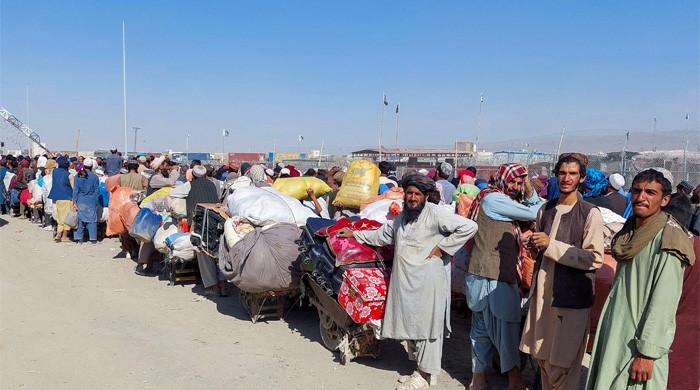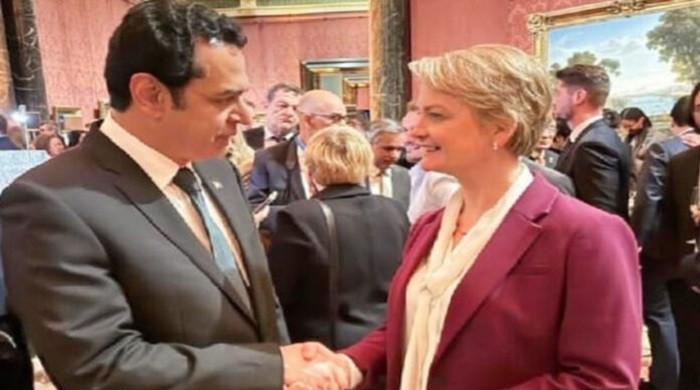Supreme Court nixes LHC's election tribunal order
Electoral body had moved apex court against constitution of election tribunals in Punjab
September 30, 2024

- Apex court's accepts ECP's plea against LHC's June 12 verdict.
- CJP-Isa led five-members bench announces unanimous ruling.
- SC says LHC's order couldn't be presented as judicial precedent.
ISLAMABAD: The Supreme Court on Monday accepted the Election Commission of Pakistan's (ECP) plea against the Lahore High Court's (LHC) June 12 verdict.
The high court had formed election tribunals to adjudicate petitions related to national and provincial assembly constituencies in the February 8 general elections.
The decision was challenged by the electoral body in the top court contending that it held the authority to form the tribunals and which couldn't be exercised by the LHC.
The 5-0 unanimous verdict, reserved on September 24, was announced by Chief Justice of Pakistan (CJP) Qazi Faez Isa-led five-member bench comprising Justice Amin-ud-Din Khan, Justice Jamal Khan Mandokhel, Justice Naeem Akhtar Afghan and Justice Aqeel Ahmed Abbasi.
Declaring the LHC's ruling "null and void", the apex court today said the high court's single-member bench's decision could not be presented as a judicial precedent as it didn't consider the lack of meeting between the LHC chief justice and the chief election commissioner.
Pointing out that if the said meeting were given due consideration, then the high court would not have made such a decision, the SC said that a cautious approach should be adopted when an issue relates to a constitutional body.
Noting that a meaningful consultation took place between the LHC chief justice and the electoral body, the court said: "Since the matter has been amicably resolved to the satisfaction of the Hon’ble Chief Justice of the LHC and the ECP adjudication was not called for, resultantly, the impugned judgment is set aside and also the notification dated 12 June 2024 issued pursuant thereto".
Also, CJP underscored that there's an additional note in the unanimous decision by Justice Mandokhel and Justice Abbasi.
Election tribunals saga
The issue arose first when the ECP, on February 14, sought a panel of serving judges from the LHC for election tribunals.
The then LHC chief justice nominated two judges on February 20 which was followed by the nomination of another six judges by the CJ on April 14.
Out of these six nominated judges, two were notified by the ECP on April 26. However, the electoral body then added additional names for the appointment to Rawalpindi and Bahawalpur election tribunals.
This, however, was denied by the LHC chief justice with the high court's registrar calling on the electoral body to notify the election tribunals consisting of the judges nominated by the CJ.
On May 29, Justice Shahid Karim ordered the electoral body to appoint six more judges, nominated by the LHC chief justice, as election tribunals for hearing election petitions regarding the general elections and said that the notification would be deemed to have been issued in case of the ECP's failure to comply by the court's orders.
The electoral body, while refusing to accede to the high court's registrar's demand, said that if it went through with notifying the election tribunals it would mean that they were in fact solely appointed by the LHC CJ and not as a result of consultations between the ECP and the chief justice — which essentially would be a violation of Section 140(3) of the Elections Act.
The then LHC Justice Malik Shahzad Ahmad constituted six election tribunals — apart from the two which were already working at that time — for hearing cases related to the February 8 polls.
The issue ended up in the apex court which on July 4 suspended the LHC's decision forming additional election tribunals as well as the ECP's April 26 notification.











